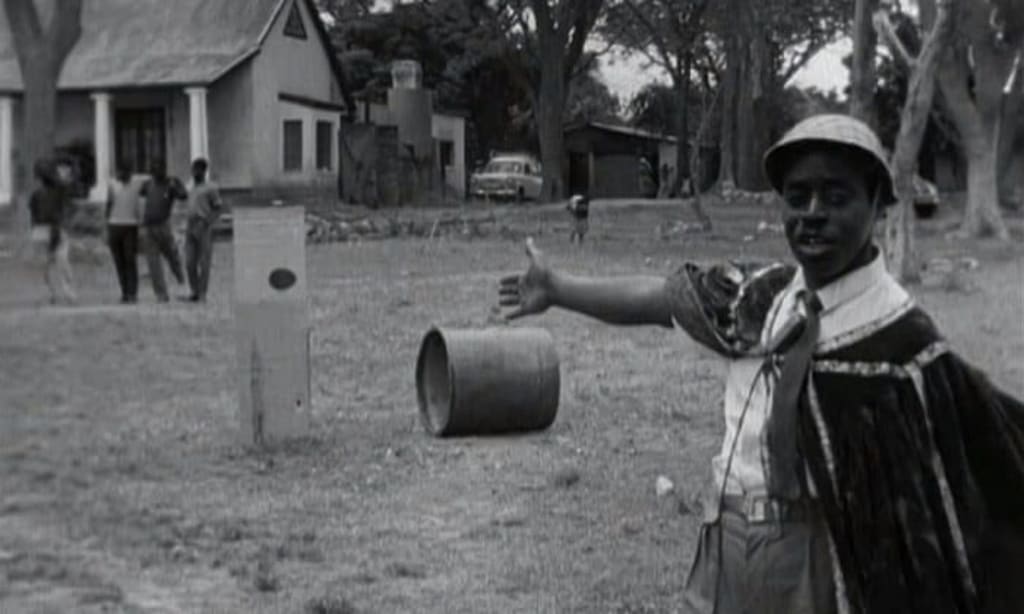
The story of the Zambian space program is a unique and comical episode in the context of the "space race." While the USSR and the USA were showcasing their technologies and striving for space exploration supremacy, another, less noticeable but still significant participant entered the race - Zambia.
Edward Mukuka Nkoloso, a man with evident ambitions, announced his space program in 1964, on Zambia's Independence Day. He claimed that, while the world was following the successes of the USSR and the USA, he, Nkoloso, was training 12 excellent candidates for a Moon mission. He asserted that Zambia's technologies surpassed those used by the USSR and the USA and that he possessed serious equipment for his program.
Nkoloso, a war veteran, teacher, and fighter for Zambia's independence, declared himself the head of the National Academy of Space Research and Astronomy. His confidence that Zambia could be a space power was striking. He envisioned his country's future as a space era surpassing Russia and America.
Nkoloso even claimed that his scientific academy was ahead of U.S. and USSR institutes by several years. In his military helmet and cape, he stated that Zambia would astonish the world with its achievements in space.
He was not alone in this endeavor. Nkoloso assembled a team of 10 people and two cats, whom he called "afronauts." His team included a young man, Godfrey Mwango, who was prepared to fly to Mars. Another team member was 17-year-old Matilda Mwamba, unable to swim but selected for her 12 cats, two of which were supposed to become "technological accessories" on their long space journey.
However, to realize his program, Nkoloso needed a lot of money - around 2 billion dollars. Although he sought support from private companies, other countries, and ordinary people, no one was willing to sponsor his project. In the end, he managed to raise enough funds only to create a prototype of his first spacecraft.
The government of Zambia's conflicting reaction also posed challenges. While the government showed interest in their endeavors, it was skeptical and unwilling to allocate money for the space race. But Nkoloso continued his space mission, even if it meant using his own funds.
The Manned Rocket System, as he called his technology, was something unique - an ordinary copper pipe. Nkoloso proudly talked about his technology, claiming that he knew how to launch it into space. However, as it turned out, it was a simple slingshot made from a rubber rope stretched between two trees.
When he attempted to launch his spacecraft, it only rose 6 feet (almost 2 meters), far from the distance to space. But in his eyes, it was close to the stars.
The training of afronauts also elicited smiles. One team member had to roll in an oil barrel down a hill, spinning 17 times before colliding with a tree. But despite all the oddities, team members demonstrated remarkable dedication to their mission.
When the time finally came for the spacecraft launch, expectations were high. Unfortunately, the space journey never took place. Lack of sufficient funding and real technologies led to the dream of space remaining just a dream.
Nevertheless, Nkoloso's story brought him unexpected success. He was appointed head of the Liberation Center, earned a law degree, and was honored in Moscow. While some called him a rural joke, others saw in him a hero, a patriot seeking to elevate Zambia's status on the world stage.
Debates on whether Nkoloso's efforts were satirical, aimed at mocking the space race, or an expression of sincere patriotism still spark discussions. But his unconventional methods left an indelible mark on Zambia's history, inspiring the creation of documentaries, books, and discussions about his unique contribution to the space race.
The afronauts, as he called them, became a symbol of Zambia's cultural pride. Ultimately, Nkoloso's story urges us to reconsider what it means to aspire to the unusual, even in seemingly insurmountable circumstances. Whether perceived as mad or visionary, his quest for space exploration added a unique chapter to the global history of the space race.





Comments
There are no comments for this story
Be the first to respond and start the conversation.